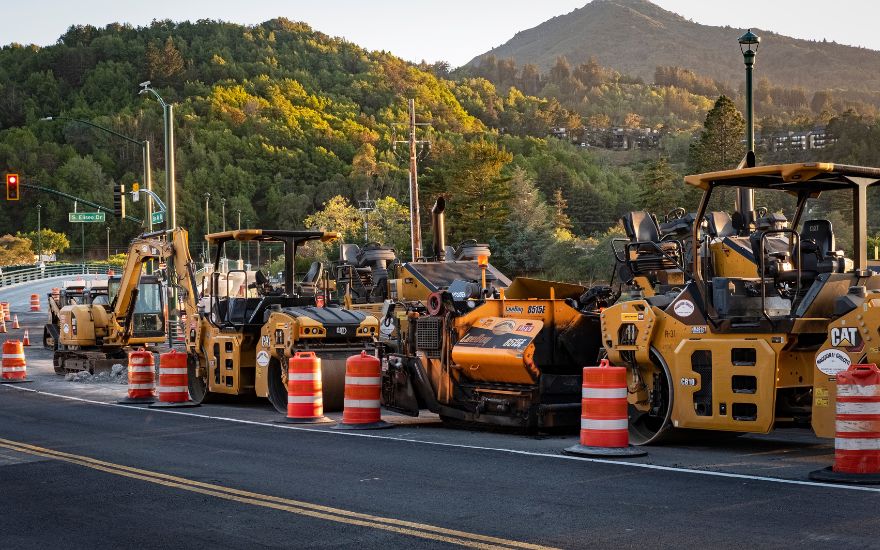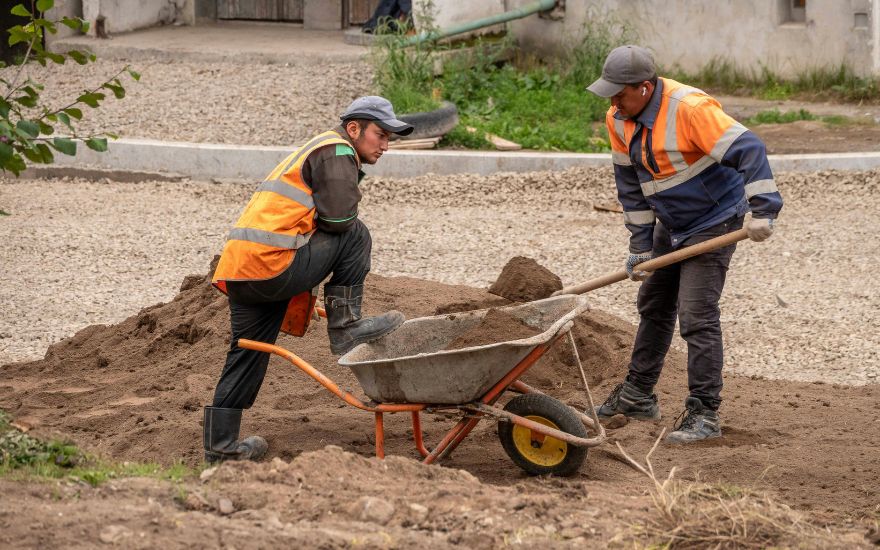If you’ve ever undertaken a major construction project in Canada, chances are you’ve come across PCL Construction. As one of the largest construction companies in North America, PCL has a significant presence in commercial, civil, and residential developments. However, despite its reputation, not every client ends up satisfied. Perhaps your project is running behind schedule, quality standards aren’t being met, or the communication with your PCL team feels frustratingly opaque. If any of these resonate with your experience, you’re not alone. The aim of this blog is to help you realign expectations and evaluate better options—because relying solely on a brand name is not always enough when it comes to construction outcomes.
In this comprehensive guide, we will walk you through crucial things to know before partnering with—or parting ways from—PCL Construction. We’ll compare alternatives, highlight key indicators of project mismanagement, and offer insights into ensuring smoother builds, whether commercial or residential. If you’re seeking a construction service in Canada that prioritizes transparency, quality, and client satisfaction, CozyCasa may just be your ideal partner. Explore CozyCasa’s services.
What You Should Know Before Judging Construction Partners
Understanding why expectations fall short is the first step in correcting a construction trajectory. Misalignments with companies like PCL often occur not because of malice or incompetence, but due to systemic issues, poor planning, or communication breakdowns. Before jumping into the fixes, let’s break down what you should evaluate.
Scope Management in Commercial Projects
Scope creep is a common issue in large-scale builds. When commercial construction goals evolve without clear documentation or approval, delays and budget overruns often follow. PCL Construction is known for tackling complex projects, but sometimes that complexity leads to vague scope definitions.
It’s essential that you monitor project goals and ensure your builder communicates changes clearly. If scope management isn’t transparent, you risk being left in the dark. Comparing PCL’s track record to smaller boutique firms like CozyCasa can help clarify the strengths and weaknesses of each.
Communication Protocols and Client Updates
One of the most common complaints about working with large construction firms is inconsistent communication. Clients may not receive regular progress updates or may struggle to reach their project manager when needed. PCL’s hierarchical structure, while efficient for internal reporting, can slow down real-time updates for clients.
Opting for a firm that emphasizes personalized communication—like CozyCasa—can help eliminate guesswork and stress. Clear, consistent updates ensure you’re always aware of timelines, cost changes, and risks.
Cost Transparency and Budgeting Practices
Large firms often bundle multiple subcontractors and vendors into a single budget proposal. While this can simplify accounting, it can also obscure hidden costs and surcharges. PCL Construction’s estimates may not always include the full financial picture upfront, leading to sticker shock mid-project.
Firms that work with flat-fee contracts or transparent cost structures can offer more peace of mind. Ask for detailed breakdowns and compare cost-control methods among providers before committing.
Safety Records and Regulatory Compliance
PCL maintains a relatively solid safety record, but every region has different standards and on-site practices. Depending on the province, enforcement and accountability may vary. Checking local project histories, safety audits, and incident reports can give a clearer idea of actual on-site safety.
In contrast, smaller firms with fewer concurrent projects often demonstrate better safety compliance. When each project receives dedicated oversight, adherence to safety protocols improves—so weigh size versus specialization carefully.
Flexibility and Customization Capabilities
Bigger firms like PCL are built to standardize processes, which can be both a strength and a weakness. For unique builds or adaptive reuse projects, this rigidity may hinder creative solutions. PCL often adheres to predefined templates or plans, which can limit innovation.
Smaller, nimble companies often excel in tailoring solutions to client needs. If your project requires high customization or adaptive strategies, evaluating CozyCasa’s portfolio could open more adaptable pathways.
Comparing Construction Options: Where PCL Stands
Now that you know what to look for, it’s important to examine how PCL Construction compares to alternative providers across key performance categories.
Project Timeline Adherence
PCL’s complex project load and dependence on subcontractors often stretch deadlines. Delays in one area—like steel delivery or zoning approvals—can cascade through the schedule. Their ability to absorb or adjust for delays is generally limited.
Smaller companies like CozyCasa may have fewer dependencies, allowing for faster real-time adjustments and reduced bottlenecks. If time is a top priority, the difference is significant.
Client Satisfaction Metrics
While PCL may complete high-profile builds, satisfaction surveys often highlight issues with flexibility and responsiveness. Many clients express concerns over feeling like just another number in a long roster of projects.
By contrast, companies focused on client-centric project management—like CozyCasa—receive higher marks for collaboration, empathy, and follow-through.
Construction Quality and Finishing Touches
In some PCL projects, finishing quality may lag behind the initial build phase. Subcontractor inconsistency and rushed handoffs between phases can compromise the end result. A lack of dedicated final inspections or post-completion service calls may exacerbate frustrations.
CozyCasa, on the other hand, offers continuous involvement from inception to final walkthrough, ensuring no detail is left unchecked.
Innovation and Technology Integration
PCL does integrate BIM (Building Information Modeling) and other advanced tech, but those tools may not always be deployed consistently across all projects. Technological advantages don’t always trickle down to the client experience.
Smaller builders like CozyCasa are increasingly using smart tools in customer-facing ways, such as virtual walkthroughs and AI-powered budgeting, giving clients a greater sense of involvement and transparency.
Local Market Understanding
PCL operates across North America and may not always understand specific community dynamics, zoning nuances, or local preferences. Their scale can become a disadvantage in highly personalized residential or regional projects.
CozyCasa’s local expertise ensures a build that not only meets code but fits seamlessly into your neighborhood’s culture, expectations, and regulations.
Why Choose CozyCasa Over PCL Construction?
When evaluating construction firms in Canada, it’s easy to be swayed by the prestige of industry giants like PCL Construction. However, prestige doesn’t always translate to performance, especially for personalized or mid-sized projects. CozyCasa brings a focused, locally-attuned approach to every build.
CozyCasa prides itself on its client-first mindset, offering transparent budgets, streamlined communications, and hands-on project management. Whether you’re planning a single-family home, a boutique commercial space, or a multi-use property, CozyCasa delivers precision, professionalism, and care. For clients tired of navigating the bureaucracy of large firms, CozyCasa provides a breath of fresh air and a return to what really matters: your vision, your budget, and your peace of mind. Start your project with CozyCasa.
Conclusion
If you’ve found yourself wondering why your experience with PCL Construction isn’t measuring up, it might be time to rethink your approach. Large firms have their place, but they may not always be the best fit for your unique project goals. By understanding the typical pitfalls—scope creep, communication issues, budgeting surprises—and weighing those against local alternatives like CozyCasa, you empower yourself to make better, faster, and smarter construction decisions.
This guide is designed to help you look beyond big names and focus on outcomes. With the right construction partner, your next build doesn’t have to be stressful, confusing, or misaligned. CozyCasa is here to help you get it right from the start. Discover more about CozyCasa’s work.
FAQs
- What types of projects does PCL Construction handle?
PCL handles commercial, civil infrastructure, and large-scale residential projects across North America. - Why do some clients experience delays with PCL Construction?
Delays often stem from scope changes, subcontractor issues, and bureaucratic project management. - Is CozyCasa suitable for large-scale construction projects?
CozyCasa is best for customized residential and boutique commercial builds requiring high client involvement. - What makes CozyCasa different from PCL Construction?
CozyCasa focuses on transparency, local expertise, and direct client communication. - Does PCL Construction offer post-completion support?
Post-project support can be inconsistent and depends on contract terms. - Can I switch from PCL Construction mid-project?
While possible, switching mid-project requires legal and financial assessment. - Are smaller firms like CozyCasa more expensive?
Not necessarily—smaller firms often provide more transparent and predictable pricing. - How can I verify a construction firm’s safety record?
Check public databases or request internal audit and incident reports. - What is BIM and does PCL use it?
BIM is Building Information Modeling, a digital tool PCL uses for some projects. - Where does CozyCasa operate?
CozyCasa primarily serves clients across Canada, with a focus on quality and client satisfaction.

